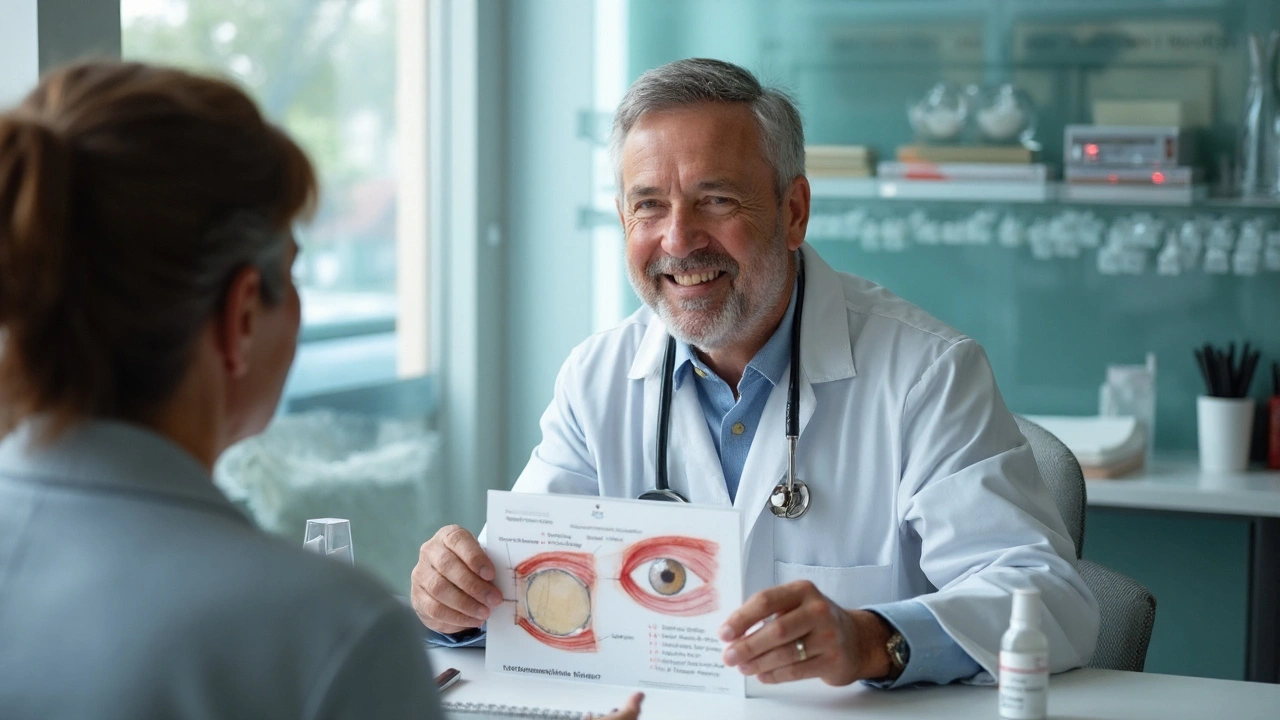Eyelid Hygiene: Simple Steps for Healthier Eyes
If your eyes feel gritty, look red, or you keep rubbing them, the cause is often right at the edge – your eyelids. Keeping them clean isn’t a luxury, it’s basic eye care. A quick daily routine can stop irritation before it starts and keep your vision clear.
Most people think eye health is only about lenses and sunscreen. In reality, the skin around your eyes does a lot of work: it spreads tears, blocks debris, and protects the delicate surface. When that skin gets oily or flaky, bacteria can grow and cause problems like blepharitis or styes. A clean lid means fewer infections and less discomfort.
Watch out for common warning signs. Crusting on your lashes when you wake up, a burning sensation, or persistent redness are all clues that your eyelids need attention. Even if you don’t notice symptoms, a gentle cleaning habit can prevent them from ever appearing.
Here’s a quick rundown of what you need to do each day. The whole process takes less than five minutes and can be done while you’re brushing your teeth. All you need is warm water, a mild cleanser, and a clean cotton pad or a soft washcloth.
Why Eyelid Hygiene Matters
When you skip eyelid cleaning, oils and skin cells build up at the base of your lashes. This creates a perfect breeding ground for bacteria. Over time, that can lead to chronic inflammation, known as blepharitis, which makes your eyes feel gritty and can even affect your vision.
Good eyelid hygiene also helps any eye drops or medications work better. If there’s leftover debris, the drops can’t reach the surface properly, reducing their effectiveness. For people who wear contacts, clean lids reduce the risk of infection and improve comfort.
How to Clean Your Eyelids Properly
Follow these steps every night, or twice a day if you’re prone to oily lids or have a history of eye infections:
- Warm up a washcloth. Soak a clean washcloth in warm water, wring it out, and place it over your closed eyes for 30 seconds. The heat softens crusts and opens the oil glands.
- Apply a gentle cleanser. Use a baby shampoo diluted with water (about 1 % concentration) or a commercial eyelid scrub. Dip a cotton pad in the solution and gently swipe along the lash line, moving from the inner to the outer corner.
- Rinse carefully. Rinse your eyelids with warm water to remove any soap residue. A gentle stream from a clean cup works well.
- Pat dry. Use a fresh soft towel to pat the area dry. Avoid rubbing, which can irritate the skin.
- Moisturize if needed. If your lids feel dry, a tiny amount of a hypoallergenic eye ointment can keep the skin supple.
Make sure you use a fresh cotton pad or washcloth each time to avoid transferring bacteria. If you wear makeup, remove it completely before cleaning; leftover mascara can hide crusts and cause irritation.
For people with severe blepharitis, your doctor might recommend a prescription ointment or an oral antibiotic. Even then, the basic cleaning routine stays the same – it just adds a medical boost.
That’s it – a straightforward routine that fits into any night‑time schedule. Stick with it for a week and you’ll notice less redness, fewer crusts, and a more comfortable feeling all day.
Ready to give your lids the TLC they deserve? Grab a clean washcloth, a mild cleanser, and start tonight. Your eyes will thank you tomorrow.

Fluorometholone for Blepharitis: Does It Work and Is It Safe?
- By : Tamsin Riverton
- Date : Sep 15 2025
Wondering if fluorometholone helps blepharitis? Clear, evidence‑based guide on when it works, dosing, risks, and safer long‑term options-UK‑aware and practical.




